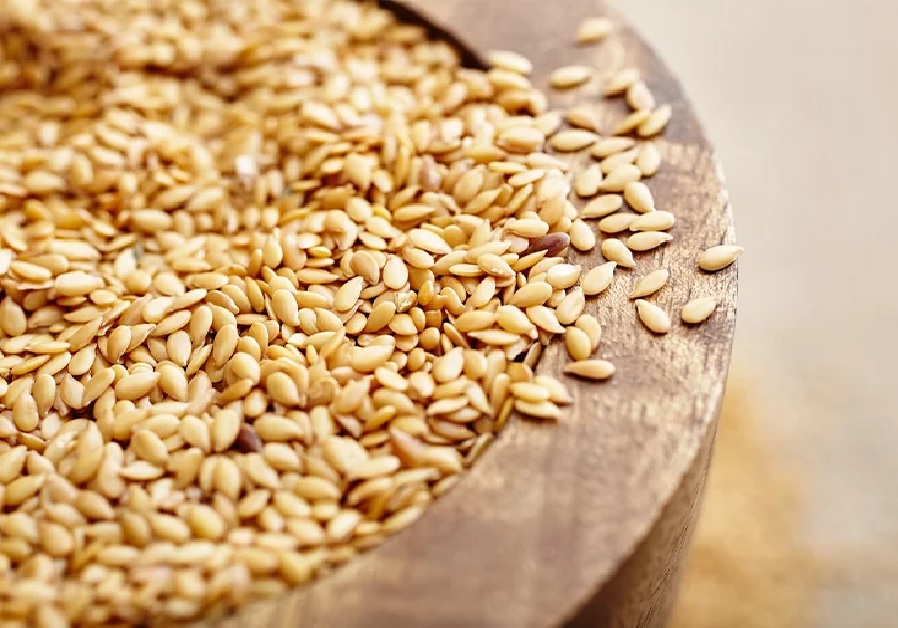What is the Grapefruit’s secret?
 Citrus fruit grapefruit has a flavour that can be acidic or bittersweet. The fruit can be eaten whole, as juice, or as pulp. When a pomelo and an orange were crossed, the grapefruit initially emerged in the 18th century. Because it grows in bunches and resembles grapes, people used to call it “grapefruit.” Grapefruit’s nutrients may support good skin and offer protection from a number of ailments. They might also aid in maintaining weight.
Citrus fruit grapefruit has a flavour that can be acidic or bittersweet. The fruit can be eaten whole, as juice, or as pulp. When a pomelo and an orange were crossed, the grapefruit initially emerged in the 18th century. Because it grows in bunches and resembles grapes, people used to call it “grapefruit.” Grapefruit’s nutrients may support good skin and offer protection from a number of ailments. They might also aid in maintaining weight.
Let’s explore some grapefruit health advantages that may exist. Find out who should be cautious when eating grapefruit as well.
Benefits
Despite having few calories, grapefruit is an incredibly nutrient-dense and rich source of vitamins C and A.
The various health advantages of grapefruit are covered in more detail in the sections below.
Diabetes
The glycaemic index of grapefruit is low. This indicates that it offers nutrients while having little effect on a person’s blood sugar levels.
Grapefruit is “strongly connected with a lowered incidence of type 2 diabetes,” according to one reliable study source. The authors also mention that naringin is present in grapefruit.
They continue by stating that naringin appears to share traits with an inhibitor that medical professionals employ to enhance glucose tolerance in patients with type 2 diabetes.
Blood Sugar Levels
Diabetes sufferers can manage their blood sugar levels by choosing which meals to eat and skipping others. The benefits of a diet rich in fruits, vegetables, and lean proteins are numerous.
Blood sugar levels will always go up with the consumption of sweet and starchy food. However, if eaten in the right amounts, these foods can support a diet plan that is balanced. The optimum carbohydrate consumption may vary depending on a person’s activity level, as well as any medications they may be taking, such as insulin.
Loss of weight
 Some think that grapefruit is a wonder fruit for losing weight. Researchers looked for evidence that grapefruit could aid in weight loss, but they found none in one trial.
Some think that grapefruit is a wonder fruit for losing weight. Researchers looked for evidence that grapefruit could aid in weight loss, but they found none in one trial.
They did come to the conclusion, nevertheless, that grapefruit might help lower blood pressure and lipid (fat) levels in the blood. Obesity, elevated lipid levels, and high blood pressure are related.
Additional research may establish the long-term benefits of grapefruit nutrients for maintaining a healthy weight and preventing obesity.
Stroke
Increased consumption of flavonoids may reduce women’s risk of ischemic stroke, according to the American Heart Association. Oranges, grapefruit, and other citrus fruits contain chemicals called flavonoids.
The highest citrus fruit consumers had a 19% decreased chance of having an ischemic stroke.
BP and cardiovascular health
Grapefruit’s fibre, potassium, lycopene, vitamin C, and choline all have potential heart-health benefits.
It is always recommended for people to consume more potassium in their diets and use less salt overall. By doing so, you may be able to avoid high blood pressure and the variety of consequences that might arise from it.
278 milligrammes (mg) of potassium are present in one small grapefruit, which is 200 grammes in weight and is 3.5 inches across.
Adults should aim to get 4,700 milligrammes of potassium daily, according to doctors. This indicates that a small grapefruit can meet about 6% of a person’s daily potassium requirements.
Cancer
Vitamin C and other antioxidants are abundant in grapefruit. These can aid in preventing the production of free radicals, which scientists believe are the root cause of cancer.
68.8 mg of vitamin C may be found in a small grapefruit. For adults, a daily dosage of 90 mg for males and 75 mg for women of vitamin C is advised. A small grapefruit also has 2,270 micrograms (mcg) of the antioxidant lycopene.
One demographic study from 2016 examined information for about 50,000 men. The study’s authors come to the conclusion that lycopene-rich tomato sauce consumption is associated with a decreased risk of prostate cancer.
Digestion
Grapefruit has fibre and water in it. In particular, a 200 g small grapefruit has 2.2 g of fibre and 182 g of water. For a healthy digestive system, both water and fibre can help prevent constipation and promote regularity.
Depending on their age and sex, adults should attempt to ingest 28 to 33.6 g of fibre daily.
Additionally, there is evidence to support the idea that consuming a lot of dietary fibre may help prevent colorectal cancer.
Skin
The major structural component of the skin, collagen, is made with the help of vitamin C.
According to a thorough investigation, vitamin C may offer a defence against ageing and UV damage. They also point out a connection between a person’s diet of fresh fruits and vegetables and their vitamin C levels.
However, some researchers have discovered data that might point to a connection between a high intake of citrus fruits and the occurrence of malignant melanoma.
They examined how much citrus juice participants consumed each week over a 24- to 26-year period and discovered that those who drank more citrus juice had a higher prevalence of malignant melanoma.
Immune system
In several ways, vitamin C supports the immune system. For instance, consuming enough vitamin C in your diet may help both prevent and treat respiratory and other diseases. People who smoke, have chronic illnesses, or are older individuals should make sure they are getting enough vitamin C in their diets. A decent alternative might be grapefruit.
What other foods provide vitamin C?
Vitamin C is always suited best and present in fruits and vegetables. People will find it simpler to meet their daily demands if they eat a variety of these nutritious foods.
Ascorbic acid, generally known as vitamin C, has a number of crucial functions in the body. It is crucial for the immune system in particular because it aids in preventing infections and fighting disease.
People must obtain vitamin C daily from their diets because the body cannot store it. Any excess is eliminated from the body in urine after dissolving in water.
The best ways to incorporate foods high in vitamin C into your diet are discussed in this article. It also goes over the purpose of the vitamin and its advantages for health.
Food sources of vitamin C.
The following foods contain more than 20% of the recommended daily value (DV) of vitamin C.
| Food | Serving size | Mg per serving | Per cent of 90 mg DV |
| Guava, raw | 1 cup, raw | 377 | 419% |
| Sweet red pepper, raw | 1 cup, raw | 190 | 211% |
| Tomato juice | 1 cup, canned | 170 | 188.9% |
| Orange juice | 1 cup | 124 | 137.8% |
| Sweet green pepper | 1 cup, raw | 120 | 133% |
| Hot green chilli pepper, raw | 1 pepper, raw | 109 | 121% |
| Oranges | 1 large fruit | 97.5 | 108.8% |
| Strawberries | 1 cup, sliced | 97.6 | 108% |
| Papaya | 1 small fruit | 95.6 | 106.2% |
Why is vitamin C so crucial?
Antioxidants include vitamin C. It guards against free radical damage to the body’s cells. Free radicals can alter DNA and cells, which can result in diseases like cancer.
Collagen, a protein required for the development and maintenance of healthy bones, joints, skin, and digestive system tissues, cannot be produced by the body without vitamin C.
The immune system, which protects against viruses, bacteria, and other pathogens, depends heavily on vitamin C. Low vitamin C levels have been linked to immune system issues as well as other ailments, according to studies.
Health benefits of vitamin C intake
Improve heart health
According to some research, vitamin C may help reduce the chance of developing heart disease or its complications.
According to one study, those who take more vitamin C have a lower risk of passing away from cardiovascular disease. In order to investigate these claims in-depth, more research is required.
However, by offering a variety of vitamins, minerals, antioxidants, and fibre, eating more fruits and vegetables helps improve overall heart health.
Building up the immune system
The immune system is strengthened by vitamin C, which can aid the body in warding off diseases like the common cold.
According to one study, vitamin C enhanced tetanus treatment and helped to prevent pneumonia.
Lowering the risk of some cancers
Since vitamin C is an antioxidant, it can stop the harm that free radicals can do. This may aid in the prevention of illnesses like cancer.
Investigations exploring the effectiveness of vitamin C in preventing cancer have produced conflicting results. However, some research findings have been encouraging:
Vitamin C has been linked to a decreased risk of some forms of brain cancers, according to a meta-analysis.
According to a different study, large vitamin C doses prevented mice’s colon cancers from growing.
According to a different meta-analysis, consuming more vitamin C was linked to a decreased risk of lung cancer.
Summary
Vitamin C is necessary for good health. Because vitamin C is found in many plant foods in high concentrations, a healthy, balanced diet that includes a variety of fruits and vegetables usually provides a person with all the vitamin C they require.
Those who wish to improve their vitamin C intake may do so by regularly consuming meals high in vitamins.















































